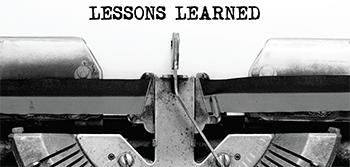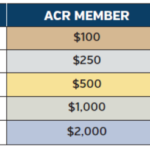
Norasyiqin Tajuddin / shutterstock.com
2018 is coming to a close, and somehow, I have managed to make it through a year as the physician editor of The Rheumatologist without being sued or fired, so I thought this would be a good time to pause and reflect on lessons learned—and to give thanks.
My first lesson: this is a lot of work. I am not stating this to ask for your sympathy. I’m stating this en route to letting you know how awed I now am by professional journalists. The Rheumatologist is not The New York Times or The Washington Post, but this position has given me an inkling of what it must be like to do this sort of work for real. The range and volume of information I have to process, just to turn out a monthly publication, is enormous. I literally cannot imagine how people deal with the exponentially greater amount of work (and tighter deadlines) that must be associated with turning out a daily publication. Newspapers perform noble work, keeping us informed in an era in which facts have fallen out of fashion. More importantly, the work is hard and deserves to be compensated at market rates. So if you have figured out a way around your local newspaper’s firewalls, I would like to suggest, gently, that you consider opening your wallet just a little bit wider this year.
My second lesson: The ACR does a lot of work for you, much of which you likely don’t know about. I am finishing 2018 as a member of the Annual Meeting Planning Committee, the Committee on Training and Workforce and the In-Training Examination Taskforce, so you would think I would have had a good sense of what the ACR does. However, after having spent this past year reading (and rereading) each article published by The Rheumatologist, I am awestruck by the amount of expertise the staff and volunteers of the ACR—in equal measure—bring to the table and the broad range of initiatives they support.
Lobbying for Lobbying
The dark horse in this category is the Government Affairs Committee. Physicians are notoriously bad at standing up for our own interests, which makes it even more critical that we have a committee dedicated to mastering the nuts and bolts of legislation. For years, I have been slightly irritated the ACR did not take more public stances on issues I find important. Now, after hearing Angus Worthing repeat this message umpteen times this year, I am finally beginning to understand that, by avoiding some of the more controversial issues, we make sure the doors stay open on both sides of the aisle.
The other side of the Government Affairs Committee is RheumPAC, which pays for the keys that open the doors. RheumPAC is “the ACR’s nonpartisan political action committee (PAC) that works to elect and support candidates who are pro-rheumatology. It is the only PAC dedicated to the interests of the rheumatology profession.”1 Earlier this year, Mick Mulvaney, a former U.S. representative from South Carolina and now the director of the Office of Management and Budget and acting director of the Consumer Financial Protection Bureau, told a group of bankers, “We had a hierarchy in my office in Congress. If you’re a lobbyist who never gave us money, I didn’t talk to you. If you’re a lobbyist who gave us money, I might talk to you.”2
